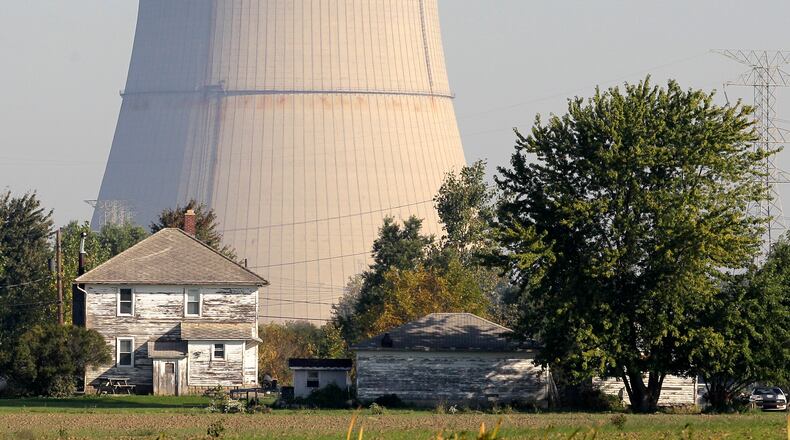“This is something that will undo a lot of damage that has been done to this institution and to the state of Ohio,” said state Sen. Rob McColley, R-Napoleon.
The nuclear subsidy is the centerpiece of House Bill 6, which Gov. Mike DeWine signed into law in July 2019 and a year later federal prosecutors announced was part of an alleged bribery scheme.
DeWine and other Ohio political leaders have called for a repeal of House Bill 6 since FBI agents arrested then House Speaker Larry Householder and four other men and charged them with racketeering last summer. But lawmakers failed to act on multiple repeal bills last year.
Householder, who has pleaded not guilty, was re-elected to the Ohio House. House Speaker Bob Cupp, R-Lima, said Wednesday he had no update on if the House might vote to expel Householder from the legislature.
House Bill 6 requires payments by customers across Ohio:
- $1.3 billion to subsidize nuclear power plants owned by Energy Harbor, through 2027;
- $444 million to subsidize coal plants owned by Ohio Valley Electric Corp. through 2030;
- $355 million in decoupling revenues to FirstEnergy through 2024; and
- $140 million in subsidies for large solar projects though 2027.
The law, which took effect in October 2019 after a contentious, expensive referendum campaign, also eliminated support for renewable energy and energy conservation programs.
Earlier this month, the Senate voted unanimously to repeal the portion of HB6 that gave decoupling revenues to FirstEnergy. Senate Bill 10 is now pending in the Ohio House.
The Ohio Environmental Council Action Fund and others have called for a full repeal of House Bill 6, which would bring back the green energy supports and eliminate subsidies for the nuclear and coal-fired plants.
Even without legislative action, parts of HB6 have been unraveled. FirstEnergy struck a deal with Ohio Attorney General Dave Yost to forego the decoupling revenues and Yost won a temporary court order to stop the nuclear subsidies.
About the Author

